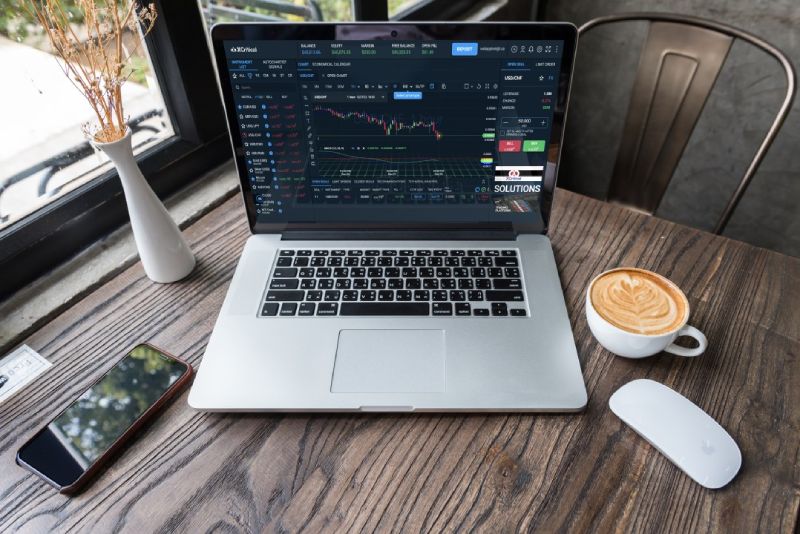The Forex market has undergone a significant transformation with the advent of electronic trading methods, revolutionizing the way we engage with the fluctuations in currency quotes. The advent of electronic trading has not only democratized access to currency markets, attracting traders from diverse backgrounds, but it has also sparked an entrepreneurial spirit among individuals and businesses looking to venture into the world of Forex brokerage.
Whether you are a seasoned trader or a newcomer to the financial industry, this guide will equip you with the expertise to navigate a multifaceted landscape that involves understanding market intricacies, regulatory compliance, advanced technological systems, and effective risk management strategies for becoming a Forex broker and learning how to start a forex brokerage. Get ready to embark on a transformative journey toward establishing a successful presence in the vibrant world of Forex trading.
Table of Contents
What is a forex broker?
Forex brokers are the intermediaries who facilitate the process, enabling individual traders and institutional clients to access the global Forex market. They provide a platform where traders can buy and sell currencies, capitalizing on the price fluctuations of various currency pairs. In essence, they connect buyers with sellers in this fast-paced, decentralized market.
These brokers offer a range of trading services, from executing orders and providing access to trading platforms, to offering valuable market analysis and research. They ensure that their clients have a seamless and secure trading experience while adhering to the regulatory standards of the financial industry.
Understanding The Forex Brokerage Business
The Forex brokerage business is a crucial cog in the machinery of global financial markets, providing traders with unparalleled access to the world’s largest and most liquid marketplace: the foreign exchange (Forex) market. Forex brokers play a pivotal role in enabling individuals and institutions to harness the vast opportunities offered by the currency market. These institutions offer a range of distinct advantages, including access to a diverse array of currency pairs and trading instruments, cutting-edge trading platforms armed with advanced charting tools and real-time data, comprehensive educational resources such as webinars and research materials, and unwavering regulatory compliance to safeguard clients’ funds and maintain a secure trading environment.
The Two Basic Business Models Of Forex Brokerage Companies
In Forex brokerage, two fundamental business models prevail, each with distinct characteristics and implications:
Straight Through Processing (STP)
Under the STP model, Forex brokers act as intermediaries that facilitate direct access to the interbank Forex market. In this setup, client orders are routed directly to liquidity providers, typically major banks and financial institutions. The key advantage of STP is transparency; traders receive real market prices and execute their orders swiftly without dealer intervention.
This model ensures that there is no conflict of interest between the broker and the trader. STP brokers often offer competitive spreads, reduced latency, and minimal slippage, enhancing overall trading efficiency. Traders who value fair, transparent, and efficient trading environments often gravitate towards STP brokers.
Market Maker Model
In contrast, Market Makers assume a different role by acting as counterparties to their clients’ trades. They create an internal market where they provide liquidity, taking the opposing side of the trade. While this model offers benefits like fixed spreads and additional services, it can introduce potential conflicts of interest.
A Market Maker’s profitability may be directly tied to the losses incurred by traders, raising questions about transparency and fair execution. Traders who prioritize the simplicity of fixed spreads and additional trading tools often opt for Market Makers, but this choice comes with the trade-off of potential conflicts.
Step-By-Step Guide To Becoming A Forex Broker
Identify Target Audience and Conduct Market Analysis
The first step in launching a Forex brokerage is to clearly identify your target audience and undertake a comprehensive market analysis. Understanding your potential clients’ needs, preferences, and trading behaviors is paramount. This knowledge will enable you to tailor your services effectively and design marketing strategies that resonate with your audience.
Simultaneously, conducting a thorough market analysis is essential to stay informed about current industry trends, identify competitors, and uncover opportunities. A data-driven approach provides the foundation for making informed decisions as you move forward in this competitive industry, ensuring that you are well-prepared to meet the evolving demands of the Forex trading market.
Complete Necessary Legal Processes
Commence by selecting the most suitable business structure, whether it’s a sole proprietorship, partnership, LLC, or corporation, considering its legal implications and tax requirements. Registration and licensing are next, requiring adherence to the regulatory guidelines governing financial services and Forex trading in your target markets.
Implement robust Anti-Money Laundering (AML) and Know Your Customer (KYC) procedures to deter illicit activities and safeguard client data. Address data security, privacy, and risk disclosure, while engaging experienced legal counsel to navigate the intricate regulatory landscape. Draft clear client agreements and commit to ongoing compliance assessments.
Select a Reliable Trading Platform
Consider the reputation and track record of potential platforms and assessing their functionality, which should encompass real-time data feeds, advanced analysis tools, and risk management features. Equally important is the platform’s user-friendliness, ensuring traders of all levels can navigate it with ease. Adequate customer support and accessible training resources enhance user experiences.
A clear understanding of the pricing structure and a scalable platform capable of accommodating future growth are also paramount. Conducting thorough demo tests allows hands-on evaluation to guarantee that the chosen platform aligns precisely with your brokerage’s unique needs and the expectations of your clientele
Build Your Brokerage Website
Your website is the face of your brokerage. Design a professional and intuitive website that provides comprehensive information about your services, trading tools, and market insights. Ensure the website is mobile-friendly and optimized for search engines, enabling potential clients to find you easily online. Clear, concise, and visually appealing content is essential to engage visitors and convert them into active traders.
Connecting a Reliable Liquidity Provider
Liquidity providers serve as the lifeblood of your brokerage, ensuring that your clients have seamless access to a continuous stream of buy and sell orders, thereby guaranteeing market liquidity. Thorough research and due diligence are essential, examining potential partners for their reputation, stability, and track record. Additionally, evaluating the breadth of their liquidity offerings and pricing structure is crucial to cater to your clients’ diverse needs while maintaining transparency.
Payment Processor
Offering a diverse array of payment options, including credit cards, electronic wallets, and bank transfers, accommodates various client preferences and extends your global reach. Security is paramount; employing robust encryption methods and staying in compliance with regulatory standards assures the safety of financial transactions.
Prioritizing transaction speed, reliability, and fraud prevention is imperative, as these factors directly impact the user experience and the trust of your clientele. Transparent communication of payment fees, efficient client support, and the implementation of automated processes enhance operational efficiency and client satisfaction. Furthermore, scalability guarantees a seamless transition to accommodate your growing client base.
Building A Strong Technical Infrastructure
It starts with the investment in hardware and software capable of scaling efficiently to manage high trading volumes, integrating redundancy and failover mechanisms to ensure service continuity during potential system failures. Prioritizing cybersecurity is crucial, involving advanced security protocols, encryption, two-factor authentication, and regular audits to protect against cyber threats.
Data protection and privacy are paramount, with encryption and compliance with data protection regulations safeguarding sensitive client information. To cater to high-frequency traders, low-latency support is vital for responsive trading. Regular system updates, maintenance, backups, and disaster recovery plans are essential to maintain optimal performance and data security.

How to Be Effective in Forex
Effectiveness in the Forex brokerage industry hinges on several key factors. Prioritizing transparency is paramount, ensuring clients are well-informed about the risks and opportunities, thereby establishing trust. Offering excellent customer support is non-negotiable, with timely and helpful assistance vital for client satisfaction. Continuous education is another cornerstone; providing clients with access to resources and training to improve their trading skills not only fosters loyalty but also enhances their performance.
Embracing technology and innovation is equally critical, with cutting-edge trading platforms, algorithmic trading, and AI-powered analytics giving clients a competitive edge. Finally, adherence to regulatory guidelines, data security, and a commitment to ethical practices are integral to building a solid reputation and credibility within the Forex industry, ultimately underpinning the effectiveness of a Forex brokerage.
In conclusion, the process of becoming a Forex broker is undeniably complex, demanding meticulous planning, unwavering commitment to regulations, and an unwavering dedication to providing exceptional services. Equipping the brokerage with the right tools and technology is vital for establishing a strong foundation. Building a reputable Forex brokerage is a journey that requires time and dedication, marked by a commitment to building strong client relationships and delivering value-added services. It is this enduring commitment that positions a brokerage for long-term success in the ever-evolving world of Forex trading.



